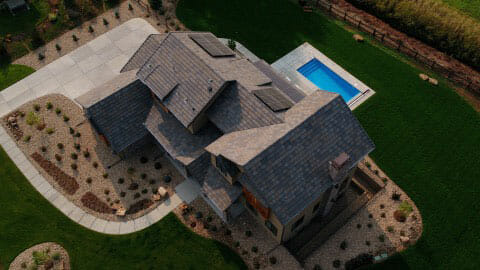 Just because it isn’t winter, it doesn’t mean your roof safe from compromise. A roof is something that requires consistent maintenance throughout the year – even in summer. We know this all too well at Advanced Roofing Technologies, and our years of experience has helped us to identify the most common summer roofing problems in Northern Colorado, Colorado.
Just because it isn’t winter, it doesn’t mean your roof safe from compromise. A roof is something that requires consistent maintenance throughout the year – even in summer. We know this all too well at Advanced Roofing Technologies, and our years of experience has helped us to identify the most common summer roofing problems in Northern Colorado, Colorado.
Heat damage
Depending on the age of your roof, the sun’s rays can significantly impact the state of your roof. Shingle roofing, for example, can dry out and crack, and will eventually need to be replaced should the damage reach such an extent that they fall off or break.
Algae and moss growth
Never underestimate the harm these seemingly harmless growths can cause. If left unchecked, moss and algae can spread to the point of damaging your roof’s structure and even the structure beneath. Best to get this checked by professional roofers in Northern Colorado to avoid an expensive summer.
Compromised gutters
Gutters should be monitored regardless of the seasons, but summer is the best time to assess leakages and damages to your gutters, and we recommend replacing them as soon as you identify any issues. Remember, if this goes unchecked it will directly impact the health of roof by contributing to water and debris build-up, which can become problematic.
Nesting
The summertime is rife for all types of animals to find a new home – and your roof may just be the perfect dwelling. Birds, cats and squirrels are perhaps the most common culprits, with a range of insects also finding the space ample breeding ground. While it may seem harmless, over time, they can present problems as their weight may impact your roof’s health. Best to contact your local wildlife experts or excavators (for insects) to have them safely removed.
Continuing leaks
Summer in Northern Colorado is the perfect time to give all those leaks a thorough assessment. The dryer weather makes them easier to identify, and more importantly, fix them up. It is best practice to get your Northern Colorado roofing service provider in during the summer to assess all potential damage and advise on the best way forward, rather than addressing the problem in winter.

